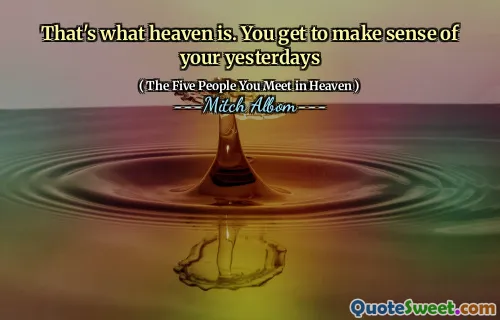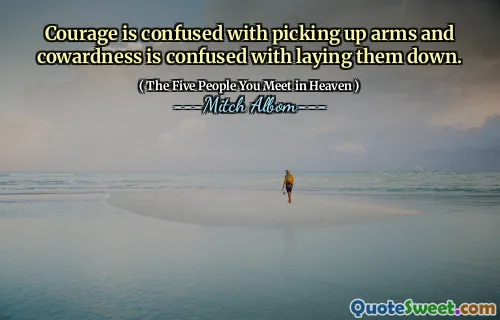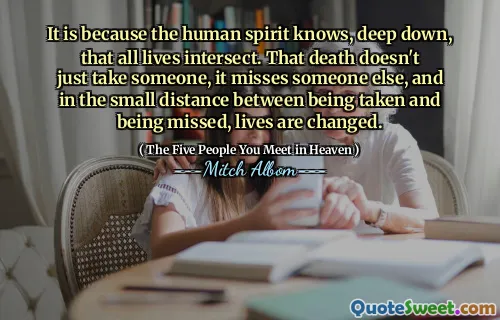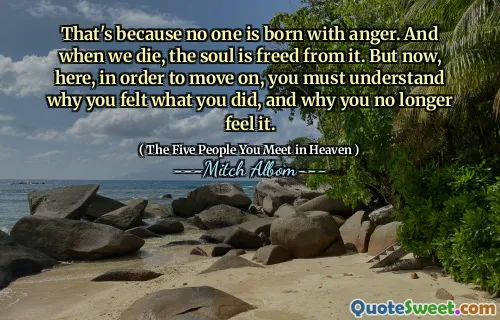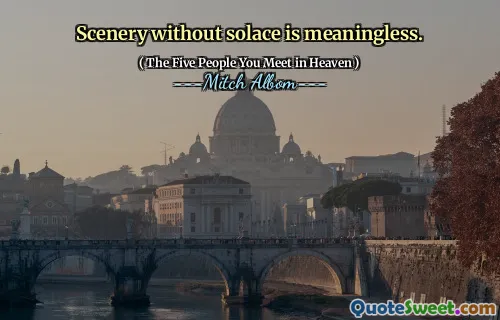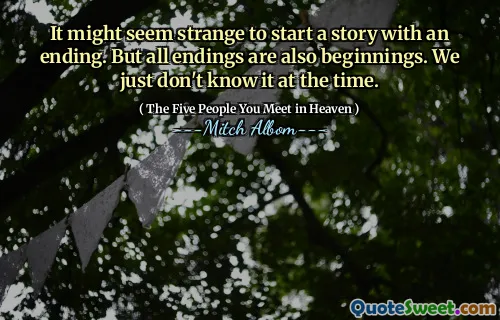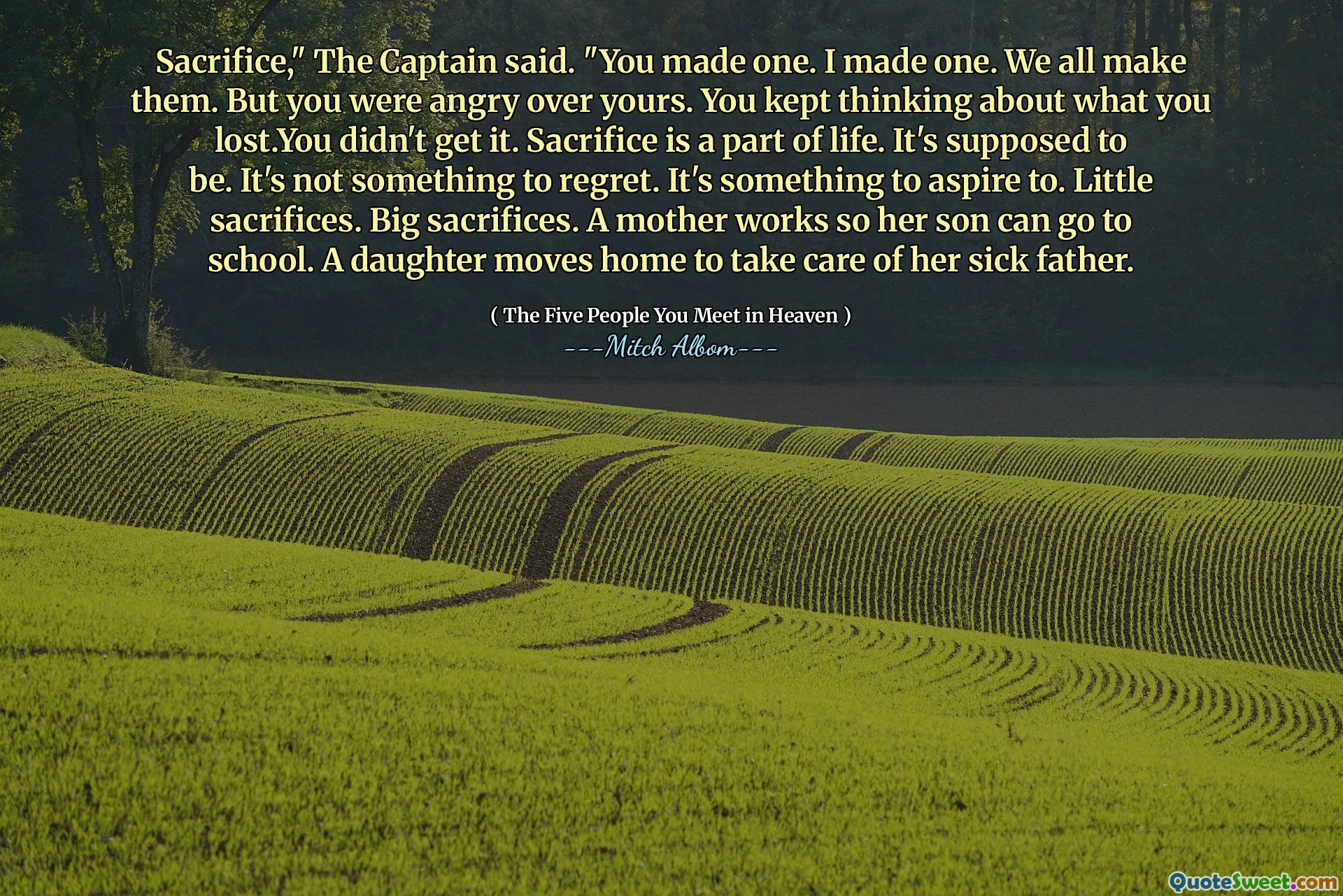
Sacrifice," The Captain said. "You made one. I made one. We all make them. But you were angry over yours. You kept thinking about what you lost.You didn't get it. Sacrifice is a part of life. It's supposed to be. It's not something to regret. It's something to aspire to. Little sacrifices. Big sacrifices. A mother works so her son can go to school. A daughter moves home to take care of her sick father.
In the dialogue from "The Five People You Meet in Heaven," the Captain emphasizes the concept of sacrifice as an inherent aspect of life. He acknowledges that everyone makes sacrifices but points out that the character’s anger stems from dwelling on personal loss rather than recognizing the value of sacrifice itself. Sacrifice should not be viewed through the lens of regret but as a noble act that reflects love and duty to others.
The Captain illustrates that sacrifices come in various forms, both big and small, citing examples such as a mother’s dedication to her child’s education and a daughter’s choice to care for her sick parent. These acts underscore the importance of selflessness and the profound connections that bind individuals together. Ultimately, sacrifice is portrayed not just as a burden but as a vital part of human experience worth embracing and aspiring to.
